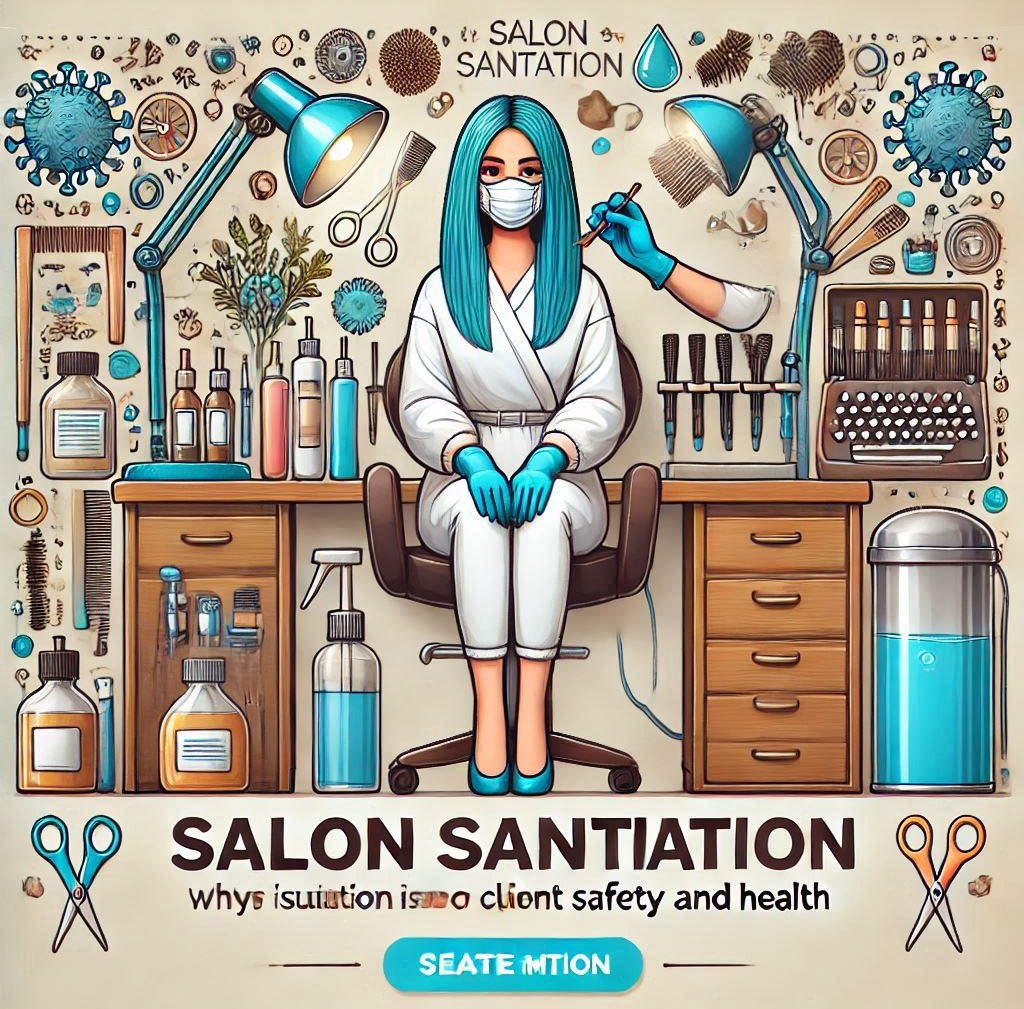Why Salon Sanitation Is Crucial for Client Safety and Health
In the beauty and wellness industry, client trust is everything. One of the most significant ways salons can build and maintain that trust is by prioritizing sanitation. Cleanliness is not just about appearances—it’s a critical aspect of client safety and health. Here's why salon sanitation is essential and how it impacts your clients and business.
SALON HYGIENE & SANITATION
1/24/20252 min read


The Importance of Salon Sanitation
1. Preventing Infections
Salons provide services that often involve direct contact with clients' skin, hair, nails, and even minor abrasions. Without proper sanitation, there’s a risk of spreading bacterial, fungal, or viral infections. For instance:
Fungal Infections: Tools used in nail services can transmit fungi if not properly sterilized.
Skin Irritations: Unclean surfaces and products can cause allergic reactions and rashes.
Serious Health Risks: Bloodborne pathogens, like hepatitis or HIV, can be transmitted through unsterilized equipment.
2. Building Client Trust
Clients expect salons to maintain high standards of hygiene. A clean salon reassures them that their health is your top priority, encouraging repeat visits and referrals.
3. Compliance with Health Regulations
Local health departments set strict sanitation guidelines for salons. Failing to meet these standards can lead to fines, license revocation, or even business closure.
Key Sanitation Practices for Salons
Sterilization of Tools
Use autoclaves or chemical sterilizers to disinfect all reusable tools.
Opt for single-use tools like nail files and buffers where possible.
Clean Workstations
Wipe down chairs, tables, and equipment between each client.
Use disposable covers for pillows and headrests.
Personal Hygiene
Staff should wash hands before and after every service.
Wear gloves for procedures involving direct skin contact or potential exposure to bodily fluids.
Proper Waste Disposal
Use covered bins for disposing of waste like used tissues, gloves, and single-use tools.
Follow local guidelines for disposing of sharp or hazardous materials.
Product and Surface Sanitation
Regularly sanitize bottles, jars, and other containers.
Clean and disinfect floors, walls, and high-touch surfaces daily.
The Role of Training
Investing in sanitation training for your staff ensures that everyone understands the importance of cleanliness and knows how to implement best practices. Regular refreshers and updates help keep your salon compliant with evolving health regulations.
Benefits of Prioritizing Sanitation
Enhanced Client Confidence: A clean salon attracts more customers and fosters loyalty.
Reduced Liability: Proper hygiene practices minimize risks of complaints or lawsuits related to health issues.
Positive Reputation: Word-of-mouth recommendations increase when clients feel safe and valued.
Final Thoughts
Salon sanitation is more than just a requirement; it’s a moral and professional responsibility. By ensuring a clean and hygienic environment, you protect your clients’ health, enhance their experience, and strengthen your salon’s reputation. Remember, a safe salon is a successful salon.
For more industry tips and advice, visit ApnaParlour.com.
